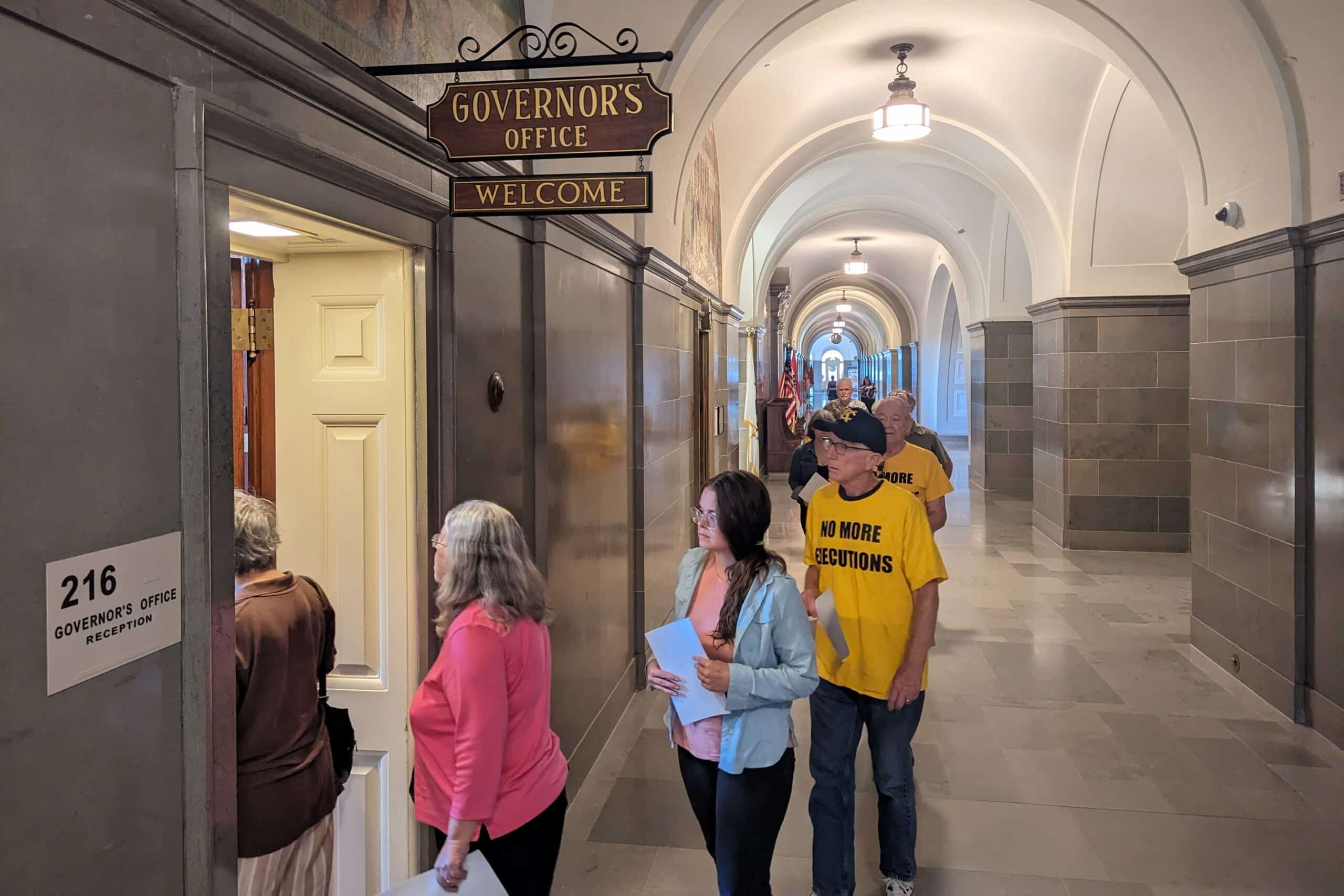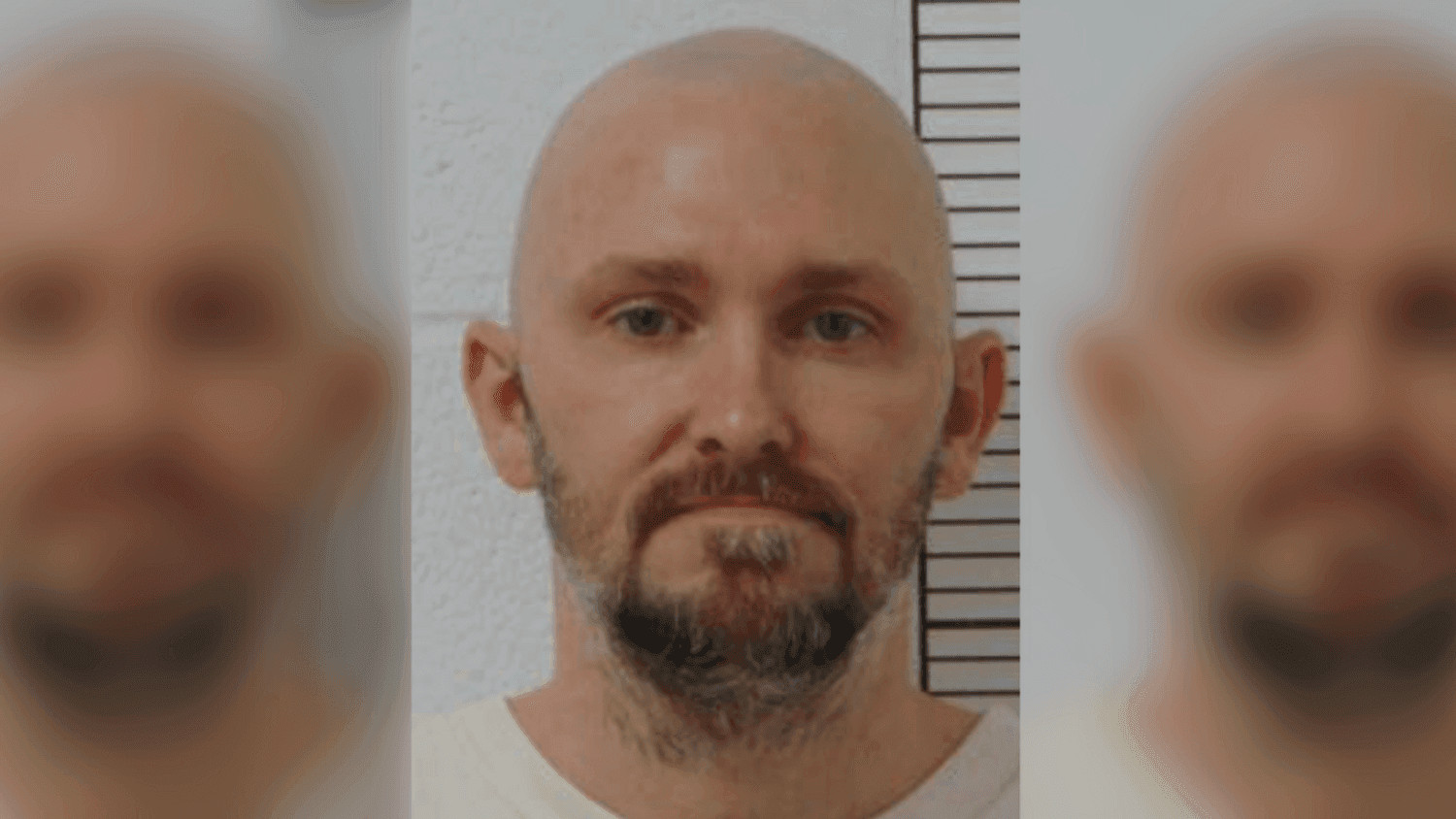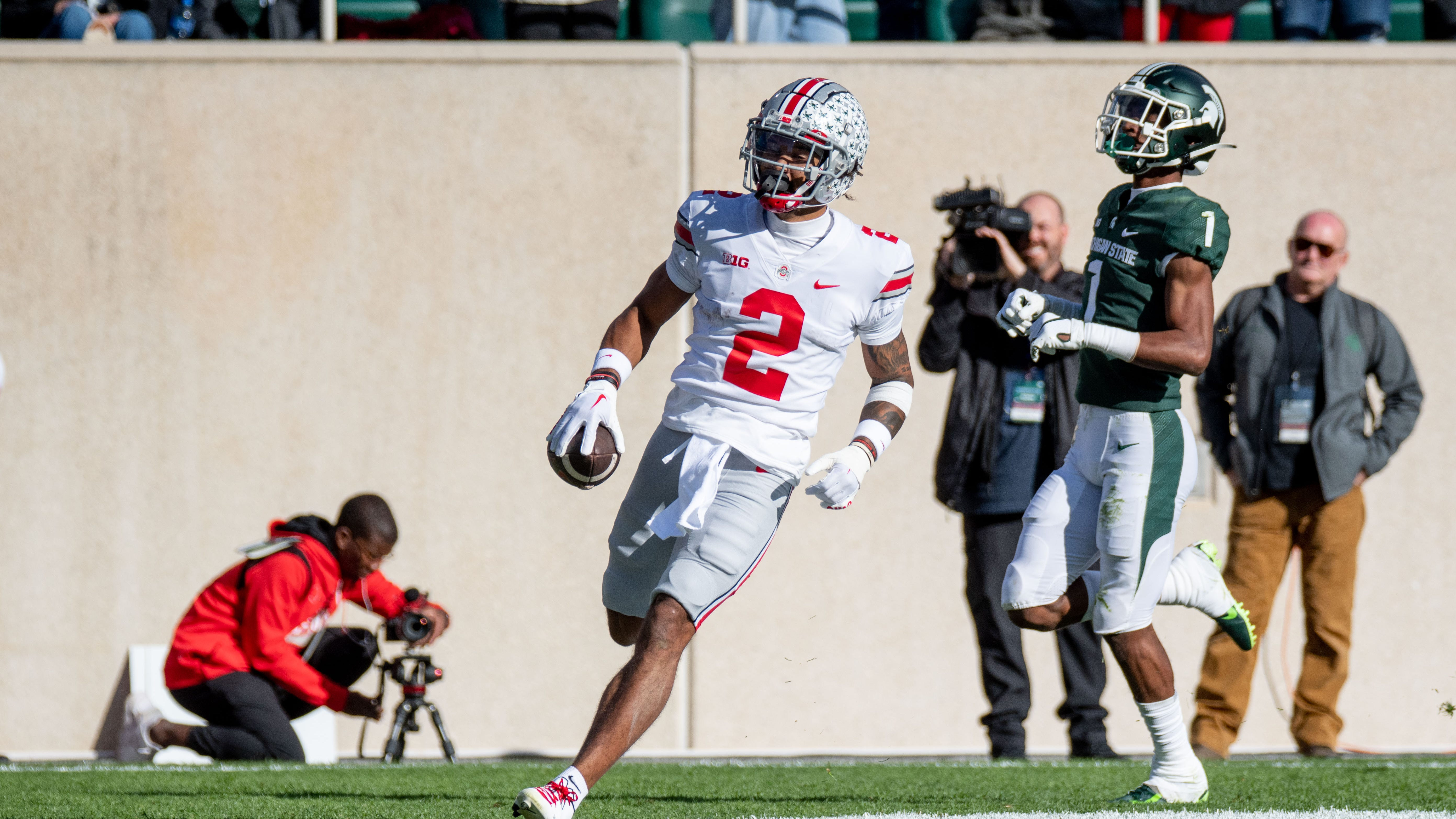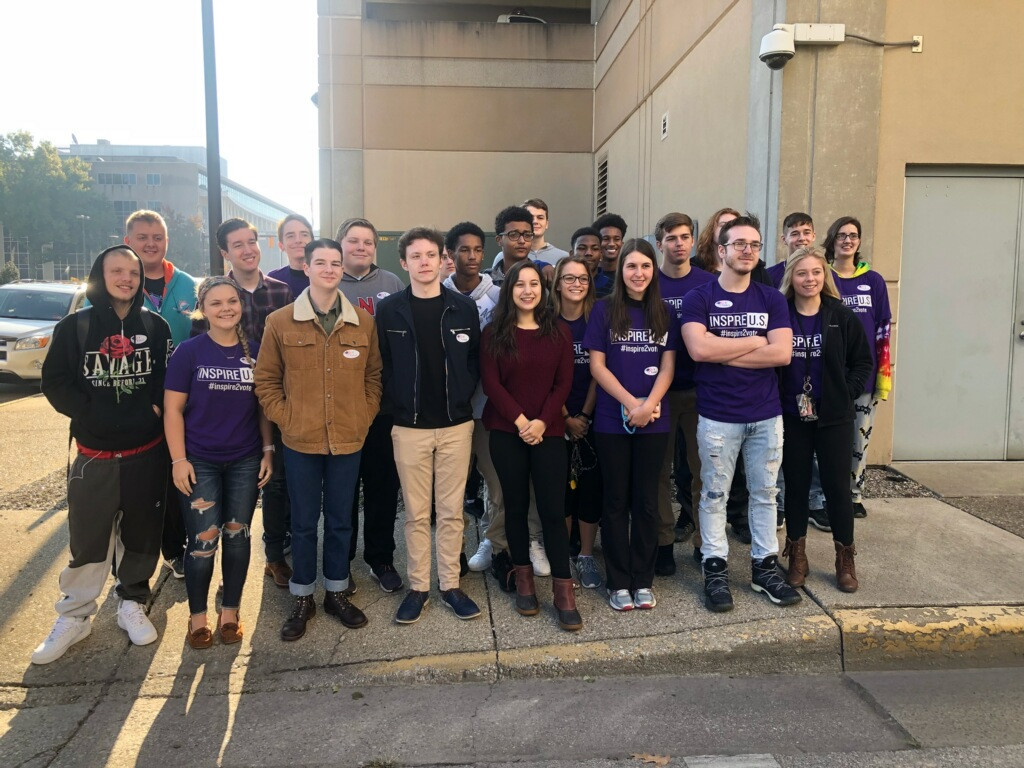Missouri is set to execute 55-year-old death row inmate Marcellus Williams on Tuesday evening — despite pleas from prosecutors and even his victim’s family. The state’s decision to push forward with the execution is among the more controversial in recent years, with the same prosecutor’s office that convicted Williams now sounding the alarm he may actually be innocent.
Felicia “Licia” Gayle was murdered in her St. Louis home in 1998. Investigators recorded fingerprints, footprints, hair, and DNA on a kitchen knife at the crime scene, but the investigation went on for more than a year before police arrested Williams. It was revealed during a trial that Williams’ DNA did not match the forensic evidence recovered from the crime scene.
Yet, Williams was still convicted of murder in 2001 and sentenced to death after damning testimony was heard from his cellmate, who claimed he confessed to the killing while in lockup for a separate crime, and from Williams’ girlfriend, who said she saw the stolen purse and laptop in William’s car.
Williams’ extensive criminal record surely didn’t help him win favor with jurors, either. At the time of his conviction, he was serving a 50-year sentence for an unrelated robbery.
Still, defense attorneys argued that Williams’ ex-cellmate and girlfriend were both gunning for the $10,000 reward put forward by Gayle’s family, which made them willing to make up lies if it’d personally benefit them. In the end, neither received the payout.
Jailhouse informants are known to be particularly problematic, with the University of Michigan finding that they’re involved in 23 percent of death penalty exoneration cases.
Williams escaped execution at the final hour twice previously, first by the state Supreme Court in 2015 and again in 2017 when then-Gov. Eric Greitens, a Republican, granted Williams a reprieve and asked prosecutors to review DNA evidence again. That DNA evidence may have exonerated Williams, but it was determined to have been spoiled by members of the prosecutor’s office who touched the knife without gloves before the trial.
Now its Parson, a former sheriff of 11 years, who is sitting in the governor’s mansion in Jefferson City. He’s been in office for 11 executions and has never granted clemency.
Parson justified his decision in a statement on Monday, writing that “no jury nor court, including at the trial, appellate, and Supreme Court levels, have ever found merit in Mr. Williams’ innocence claims.”
The Midwest Innocence Project says it will push for Williams’ clemency up until 6 p.m. CST Tuesday, when he’s scheduled to be killed by lethal injection.
Prosecutors Join Family in Seeking Clemency
Marcellus Williams, 55, was convicted of killing Felicia Gayle, a former newspaper reporter found stabbed to death in her home in 1998. Williams has long insisted he is innocent. And in an unusual move, St. Louis County’s top prosecutor filed a motion in January to vacate Williams’ 2001 conviction and sentence.
But that motion was denied. With new information about potential evidence contamination, Prosecuting Attorney Wesley Bell and Williams’ lawyers had recently filed a joint brief asking the Missouri Supreme Court to send the case back to a lower court for a “more comprehensive hearing” of the January request by Bell, a Democrat now running for Congress.
Concerns About Racial Bias
The court considered several questions, the state’s judicial branch said.
The first involves whether the prosecutor in Williams’ 2001 trial struck a potential juror from the jury “as a result of discriminatory intent.”
Williams’ attorneys have also asked the US Supreme Court to stay the execution, based on “newly-discovered evidence from the trial prosecutor’s testimony” last month.
During a motion-to-vacate hearing on August 28, a prosecutor from Williams’ trial “admitted that he had struck (a potential juror from the jury pool) because like Mr. Williams, (the potential juror) was Black,” Williams’ attorneys wrote in an emergency request for the US Supreme Court to intervene.
During Monday’s hearing in the Missouri Supreme Court, Williams attorney Jonathan Potts claimed the trial prosecutor nixed the potential juror “in part because he was a young Black man with glasses.”
“There was a racial component to this,” Potts said.
But the Missouri attorney general’s office disputed that notion, saying the trial prosecutor’s intent for striking the potential juror was not due to race.
“What did he say when asked directly, ‘Did you strike someone partially with part of the reason for striking someone because you’ve been Black?’ He said no, absolutely not,” Assistant Attorney General Michael Spillane said during Monday’s hearing. “And he explained that that would be a violation.”
DNA Evidence Contaminated by Prosecutors
Another question the court considered involved whether there was sufficient evidence presented that the prosecutor’s office “engaged in the destruction of potentially favorable evidence in bad faith,” the state’s judicial branch said.
That includes “whether the prosecutor destroyed any DNA evidence on the murder weapon by handling it without gloves.”
Ultimately, the state Supreme Court unanimously decided not to halt the execution of Marcellus Williams because the prosecuting attorney “failed to demonstrate by clear and convincing evidence Williams’ actual innocence or constitutional error at the original criminal trial that undermines the confidence in the judgment of the original criminal trial,” the opinion read. The opinion also stated “because this Court rejects this appeal on the merits, the motion for stay of execution is overruled as moot.”
Voices for Clemency
In a statement after the decision Monday, Tricia Rojo Bushnell, an attorney for Williams, said the “courts must step in to prevent this irreparable injustice.”
“Missouri is poised to execute an innocent man, an outcome that calls into question the legitimacy of the entire criminal justice system,” she said.
In his own statement Monday, Bell said he and other advocates will continue the fight to save Williams’ life.
“Even for those who disagree on the death penalty, when there is a shadow of a doubt of any defendant’s guilt, the irreversible punishment of execution should not be an option,” Bell said.
Prosecutors Raise Doubts About Conviction
In their joint brief, Bell and Williams’ attorneys argue the St. Louis County Circuit Court failed to credit newly disclosed evidence that contradicts representations by the prosecutor in Williams’ 2001 trial and in his prior appeals.
The Prosecuting Attorney’s Office, which handled that trial against Williams, said in its January motion that DNA testing of the murder weapon could exclude Williams as Gayle’s killer. But the argument fell apart last month after new DNA testing revealed the murder weapon had been mishandled, contaminating the evidence meant to exonerate Williams and complicating his quest to prove his innocence.
Attorneys on both sides “received a report indicating the DNA on the murder weapon belonged to an assistant prosecuting attorney and an investigator who had handled the murder weapon without gloves prior to trial,” according to a docket summary of the case.
However, “the circuit court concluded there was no new evidence sufficient to set aside the conviction or to establish Williams’ innocence.”
Williams’ attorneys said the prosecution’s contamination of the DNA evidence before Williams’ trial violated his due process rights. They joined the county’s current top prosecutor in asking the Missouri Supreme Court to cancel the circuit court’s decision and send the case back to give both sides time to present evidence and the court enough time to carefully consider the case.
Bell and Williams’ attorneys are trying to get the conviction overturned due to “overwhelming evidence” showing Williams’ trial was unfair, said one of his attorneys, Tricia Rojo Bushnell.
The prosecutor’s office has raised other concerns about Williams’ conviction, including claims he was convicted on the testimony of two unreliable informants facing their own legal troubles and further incentivized by $10,000 in reward money.
But ultimately, a state judge ruled against Bell’s motion to vacate Williams’ conviction and sentencing.
“There is no basis for a court to find that Williams is innocent,” Judge Bruce F. Hilton wrote in his judgment, “and no court has made such a finding. Williams is guilty of first-degree murder, and has been sentenced to death.”
A Divided Legal Landscape
The case has pitted Bell, who assumed the office in 2018, against Republican state Attorney General Andrew Bailey, who is seeking reelection. Bailey had fought Bell’s January motion, saying new DNA test results indicated the evidence would not exonerate Williams.
Last month, Bell’s office announced it had reached an agreement with Williams. Under the consent judgment approved by the court and Gayle’s family, the inmate would have entered an Alford plea of guilty to first-degree murder and be resentenced to life in prison.
But the state attorney general’s office opposed the deal and appealed to the state Supreme Court, which blocked the agreement.
Former GOP Gov. Eric Greitens previously halted Williams’ execution indefinitely and formed a board to investigate his case and decide whether he should be granted clemency.
But after Parson took office, he dissolved the board investigating Williams’ case and revoked Williams’ stay of execution in 2023.
“This Board was established nearly six years ago, and it is time to move forward,” Parson said last summer. “We could stall and delay for another six years, deferring justice, leaving a victim’s family in limbo, and solving nothing. This administration won’t do that.”
The move effectively denied Williams his right to due process, Williams’ lawyers said.
“The Governor’s actions have violated Williams’ constitutional rights and created an exceptionally urgent need for the Court’s attention,” court documents state.
But Parson’s decision to dissolve the Williams board of inquiry does not mean the governor had decided Williams should or should not be executed, spokesperson Johnathan Shiflett wrote in an email to CNN earlier Monday.
“That is for the Courts to decide.”
A Call for Justice
The NAACP and the Council on American-Islamic Relations have called on Parson to halt Williams’ execution. The governor previously revoked a stay of execution in the case ordered by his predecessor, allowing plans to put Williams to death to proceed.
The case has drawn concern across the political and faith spectrum. More than one million concerned citizens petitioned Governor Parson to commute Mr. Williams’ death sentence, as did a group of 69 Missouri faith leaders from the Muslim, Christian, and Jewish communities.
Williams is scheduled to die by lethal injection around 6 p.m. CT Tuesday. The victim’s family has made clear they oppose Mr. Williams’ execution, and the St. Louis County Prosecutor moved to vacate his conviction. That motion was denied after the discovery that the trial prosecutor had contaminated potentially exculpatory DNA evidence. The Prosecuting Attorney also confessed constitutional error based on racially biased jury selection; appeals relating to this issue remain pending in state and federal court.
Final Words
“Missouri is poised to execute an innocent man, an outcome that calls into question the legitimacy of the entire criminal justice system. Given everything we know about Marcellus Williams’ case—including the new revelations that the trial prosecutor removed at least one Black juror because of his race, and opposition to this execution from the victim’s family and the sitting Prosecuting Attorney, the courts must step in to prevent this irreparable injustice.”


















